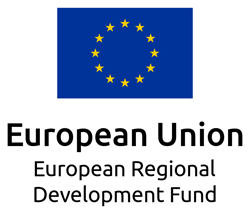What is mentoring in procurement? What are the key differences in comparing mentoring to traditional training?
Tomasz: Both training and mentoring are meant to support competence development, but they do so in different ways. In mentoring, we use a very flexible approach that focuses on supporting the procurement specialist in daily work and learning by doing. This mainly distinguishes mentoring from training, which is usually based on theory and a proven didactic scheme. Working with clients in mentoring focuses on solving specific problems and challenges faced by a procurement specialist of a particular organization.
Therefore, it can be said that mentoring focuses on practical activities and individual needs more than training. It is development through the acquisition of skills while performing daily duties with the support of a mentor.
Does this mean training is ineffective?
Tomasz: Training is a valuable tool to acquire new knowledge and systematize it. Building awareness of one’s own competencies and figuring out in what direction to develop. Often during training we begin the path of development of specific competencies, while the development is already taking place in everyday work. The availability of training courses is very high. However, there are few that will fully meet the individual expectations of each participant. This is due to their formula and the fact that everyone has different needs. Therefore, in order to maximize the positive effect of training, we need to prepare for them, think about and organize the knowledge gained during them and implement what we have learned in stages. Very often we lack time for all this.
So what does mentoring support look like?
Tomasz: The mentor interacts with the procurement team or a specific specialist. He or she observes the realities of his or her operation and supports the merchant during the execution of tasks. These can be daily work tasks like tender preparation, data analysis, market discernment, sourcing, preparation for negotiations, participation in negotiations, etc. Often these are also challenges that the merchant does not face every day like building a category strategy, workshops with suppliers, or preparing and leading an innovative procurement project. The role of the mentor is to solve, together with the merchant, the dilemmas and purchasing issues that arise during these activities. The buyer continues to work independently, but can count on support at every stage of his tasks and develop his competencies in the process.
So mentoring is practically such training that saves time?
Tomasz: You could say that. The basis of a mentor’s work is to interact with buyers, who, performing together with the mentor the tasks that are within the scope of their standard duties, understand why they should be performed in a certain way. What processes are taking place and why, what opportunities and threats specific situations generate, and what tools can be used. When we work together, we focus on building competencies, moderating the development of standards and best practices of conduct. This approach helps the merchant build a solid workshop foundation without spending time on additional training. Using mentoring, we can also shorten the implementation time for new employees by imparting knowledge of the specifics of a particular organization, procedures, tools, purchasing practices within it, and tailored to their current knowledge and skills.
How long can a client rely on mentors for support?
Tomasz: The length of support depends mainly on the needs of the customer. As a rule, mentoring is the long-term support of the purchasing department, which customers can use according to the needs they have at a given time. Each purchasing department has its own development cycle. At each stage of it, mentoring support helps maximize the effectiveness of buyers and the entire purchasing organization. Mentoring support usually lasts about 12 months. However, we have clients with whom we work for several years.
Of course, we can agree on a specific time frame for such support and the results we want to achieve. During this time, mentors work actively with the purchasing team. As part of our support, we share knowledge, benchmarks and best practices in soft skills. In mentoring, we assume cyclical support from our consultants. Time constraints are mainly due to the mentor’s level of commitment and the frequency of meetings with the buying team.
What is the typical process, preparing a mentoring offer for a client?
Tomasz: A mentoring offer is tailored to the needs of a specific client. Each purchasing organization has its own specifics, operates in different realities of the business environment and enterprise. That’s why we start by identifying the needs. We analyze the client’s baseline by conducting interviews and looking at data and resources. In this way, we determine together with the client the scope of mentoring support, its goals and priorities.
I understand that you focus on the specific needs of the client, tailoring the mentoring offer to their requirements. From what you’re saying, it seems that mentoring is not about handing over ready-made solutions to the client, but about helping the client build competencies, and together with the client’s team develop optimal processes and standards. This is certainly a valuable value proposition for many companies. Can you give any specific example of when your mentoring services have resulted in measurable benefits for the client?
Tomasz: One recent example is our work with a company in the retail industry. This is our client, which faced the challenge of completely rebuilding its purchasing department. Together with the client, we created a new procedural framework for its operation, implemented new buyers, whom we supported in building the purchasing category strategy and during the specific buying activities of each of the seven members of the new team.
We also supported the client’s team during the implementation of digital tools for handling purchasing processes, which made it possible to increase the transparency and automation of many of them, and increased the efficiency of the purchasing team.
At the moment, this client’s purchasing department is well organized. It is a stable team with a clear division of responsibilities and an equal understanding of the role of the buyer in the organization. Together, we have achieved savings by optimizing processes and implementing purchasing strategies. The cooperation was also rich in joint meetings with suppliers, workshops, and tender proceedings prepared and conducted side by side with the client’s buyers.
Importantly, as the client’s team grew, our cooperation evolved, changed its scope, and the mentoring formula allowed us to remain flexible and responsive to the client’s current needs.
Since we’re talking about purchasing optimization, we can’t avoid the topic of cost – so what are the costs of implementing mentoring for the purchasing department compared to other options for supporting the purchasing department?
Tomasz: Mentoring pricing is tailored to the client’s needs. The customer can use the support in the areas where they need it most and at the time they need it. There may be one person dedicated to the support, but there may be more. The time commitment of the mentor is a subject to be determined – it can be several hours a week. Each offer is determined individually and adjusted during the course of cooperation to meet the needs of clients.





 OptiBuy - a WNS company
OptiBuy - a WNS company 




